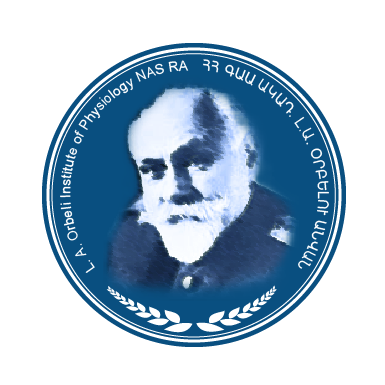- Home
- About us
- Laboratories
- Central Nervous System Physiology
- Central Nervous System functions compensation Physiology
- Immunology and Tissue Engineering
- Smooth Muscle Physiology
- Toxinology and Molecular Systematics
- Sensorimotor Integration
- Laboratory of Histochemistry and Morphology
- Human Psychophysiology
- Integrative Biology
- Purification, Certification and Standardization of Physiologically active substances
- Neuroendocrine Relationships
- Distance Լearning Center
- Laboratory of Hyperspectral Imaging of Surgical Targets
- Biophysics Lab
- News & Events
- Master's Program
- Research
- Councils
- Contact Us
- OIPH Docs
L. A. Orbeli Institute of
Physiology NAS RA
Distance Learning Center
A successful e-learning strategy requires analysis, design, development and implementation of teaching-learning strategies and content with context to support a wide range of business and educational goals and objectives, teaching-learning formats including classroom- and web-based professional development with an emphasis on distributed learning environments using asynchronous and/or synchronous systems and Web technologies. To be successful IT must take into account different teaching-learning styles while providing distance learning solutions to help an institution become a strategic e-learning organization. It begins by making a high-level analysis of an organization's e-learning readiness to give a clear idea of the ability and willingness of its stakeholders to support the new learning strategy. In essence distributed learning connects people to people and people to knowledge through the judicious use of technology. Therefore, e-learning can be considered from two perspectives: Technology and Pedagogy.
The main target group of OIPH is not only our PhD students, but also blended learning in Master’s Degree program, as well as life-long learning for the limited in time target group people, who has graduated the institute and have problems with employment. It also aims to involve students from Medical Institutions, Institute of Biomedicine, Biochemistry and allied sciences.
Orbeli Institute of Physiology plans:
- to organize on-going trainings of staff, students and administration in order to provide helpful information about distance learning,
- to increase student and staff awareness of effective online course design,
- to support the production of relevant digital content to enhance student learning,
- to provide support to incorporate technology into teaching and learning experiences (use of video conferencing equipment, multimedia presentations, curricular development for new media, strategies for communicating with distant students, television production and presentation, sophisticated computer applications, and the provision of learning resources to remote students through electronic means).
- collaborate with colleges, other institutes, scientific organizations employing distance education program strategies.
- to promote e-learning in Armenia by issuing booklets, brochures and etc.
- to carry out pilot projects oriented towards creative and contextual implementation of e-learning in concrete university programs and supported by the newly established canters for e-learning
| Publications |
|---|
|
Group members








